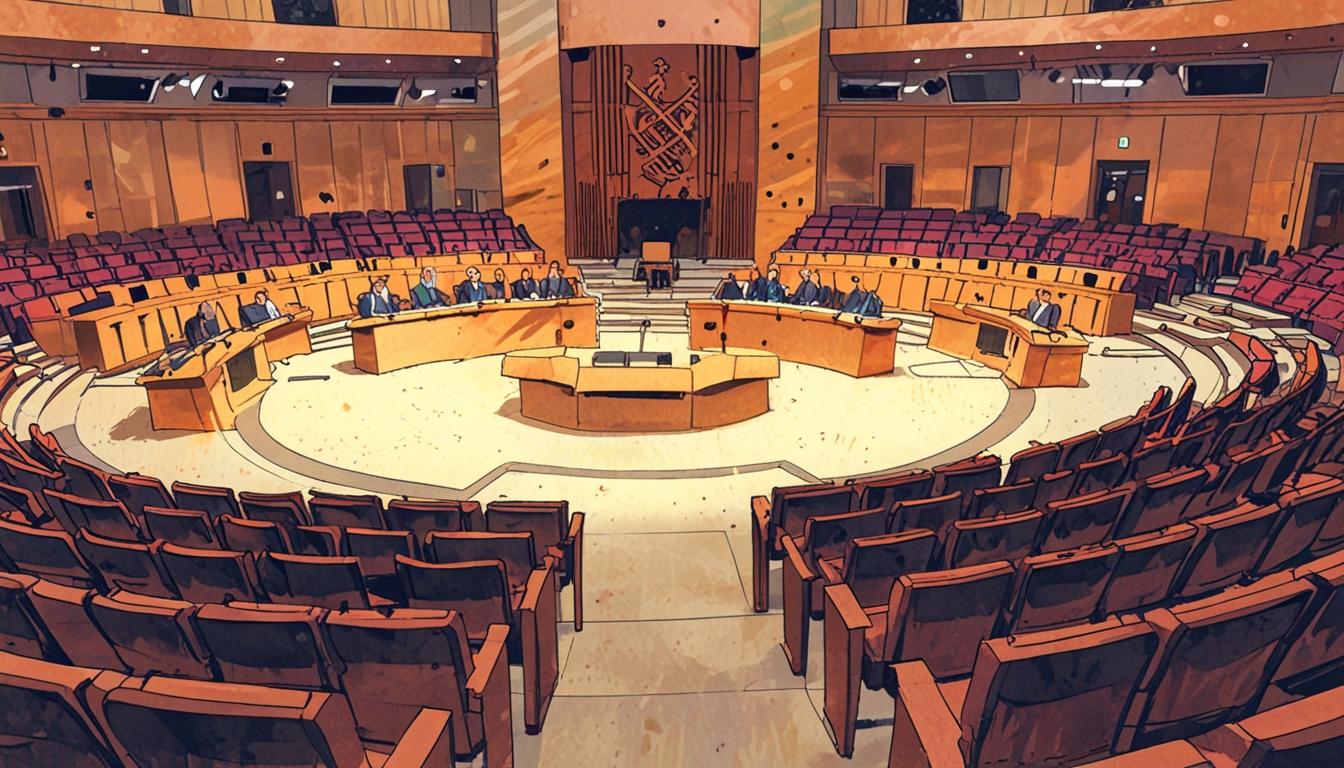In a heated session at the Scottish Parliament's First Minister's Questions, the tensions between parties were palpable as Scottish Conservative leader Russell Findlay took a strong stance against the Scottish Greens, accusing them of pursuing a reckless agenda aimed at dismantling Scotland's vital oil and gas industry. His characterization of the Greens as "dangerous ideologues" should serve as a wake-up call to those concerned about the future of energy production in the region.
The Bute House Agreement, while intended to outline energy policy, has become a battleground for competing visions of Scotland's energy landscape. Findlay's pointed remarks highlight just how far removed the current government’s policies are from the needs of working Scots reliant on the oil sector for their livelihoods. The recent decision to cease crude oil processing at the Grangemouth facility underscores the detrimental consequences of appeasing Green policies, leaving thousands uncertain about their futures.
While First Minister John Swinney offered a hollow expression of "solidarity" with affected workers, Findlay's critique that the government’s actions contradict their words rings true. The SNP once rallied behind the mantra that "It’s Scotland’s oil," yet they now appear bent on curtailing production, a flip-flop that could lead to severe economic repercussions for both workers and the broader economy.
In response to Swinney's dismissal of Conservative climate targets, Findlay aptly pointed out the contradictions in the SNP’s narrative. Swinney’s attempts to portray Conservative concerns as “barefaced dishonesty” fall flat when considering his party’s history of placing ideology above the economic well-being of the populace.
The confrontation also brought nuclear energy into the spotlight, revealing further fissures in the Scottish government’s strategy. Findlay’s suggestion that real commitment to emissions reduction would involve backing nuclear power is a call to pragmatism that the SNP seems unwilling to embrace. As Swinney deflected with concerns over cost overruns related to nuclear projects like Hinkley C, he missed the larger point: energy security and reliability should take precedence over ideological purity.
The ongoing debate reflects a crucial rift in Scottish politics over energy policy. While the SNP and the Greens advocate for a hasty transition from fossil fuels, the opposition highlights the potential dangers this poses to jobs and economic stability—issues that resonate with voters. The choices made now will shape Scotland’s economic landscape for years to come, and the need for realistic, economically sound energy policies has never been more urgent.
Source: Noah Wire Services
